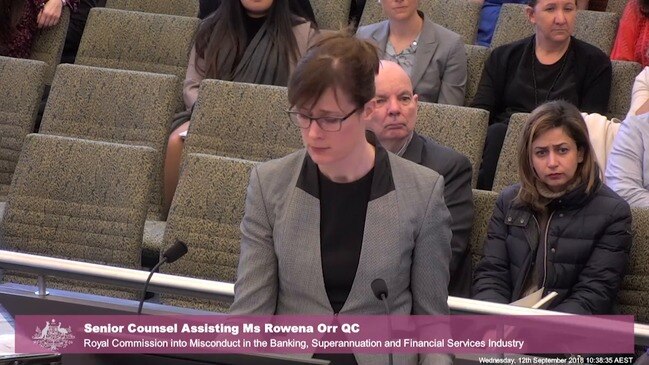Customers of banks and insurers who complain via social media will get formal responses, ASIC rules
Banks, insurers and super funds will have to deal with customer disputes in as little as half the time as well as formally address grievances made via social media.

Banking
Don't miss out on the headlines from Banking. Followed categories will be added to My News.
Banks, insurers and super funds will have to deal with customer disputes in as little as half the time as well as formally address grievances made via social media.
In a crackdown by the corporate regulator, financial firms will also be forced to hand over complaints handling data that will then be made public in a bid to trigger competition based on superior clear-up rates.
Australian Securities and Investments Commission deputy chair Karen Chester said the need for “much improvement” was “widely acknowledged” following the financial services royal commission and other inquiries.
Firms’ dispute resolution processes are so dismally regarded that half of those who consider making a complaint never end up lodging one, according to ASIC research.
And disturbingly, nearly a fifth of complainants drop out before a conclusion is reached.
RELATED: Allianz doubles insurance payout

“ASIC’s new standards will lift complaints handling performance of firms and ultimately consumer outcomes and fairness of the financial system,” Ms Chester said.
The corporate regulator has begun public consultation on the reforms, which would see superannuation funds have just 45 days to respond to member complaints — instead of 90 now — while banks, insurers, financial advisers and credit providers would have 30 days, down from 45.
The range of avenues for seeking a resolution is to be broadened to formally include firms’ social media platforms for the first time, as long as the post “explicitly or implicitly” seeks a response.
The customer can’t be anonymous and rants won’t require an answer.
ASIC believes the real game-changer in the reforms could be the requirement on firms to report data on complaints handling.
Currently there is no solid information on firms’ performance.
ASIC’s plan is to start publishing a “leaderboard” from next year with the aim of starting a battle to be seen as the best, as has happened in broadband since the Australian Competition and Consumer Commission began reporting rival internet service providers’ NBN speeds.

ASIC’s new standards also set clearer rules on what should be in written reasons for decisions.
Complying with dispute resolution requirements is part of the general obligations under the Corporations Act.
The penalties attached to that part of the act were increased significantly in March, to $10.5 million or three times the benefit obtained or 10 per cent of annual turnover — whichever is greater.
Some of the horror stories that emerged during the royal commission may have been avoided under the changes now being pursued.
These include Freedom Insurance’s deplorable treatment of a young disability pensioner with Down syndrome who was talked into paying for funeral insurance he didn’t understand.
When his father Grant Stewart tried to cancel the policy, he was transferred to the retention team.
A member of that team later described Mr Stewart as a “bloody whinger” in a message to a colleague.
Freedom’s shares have shed 95 per cent of their value since its behaviour was exposed at the royal commission.
ASIC is completing an investigation into the company.
Originally published as Customers of banks and insurers who complain via social media will get formal responses, ASIC rules


